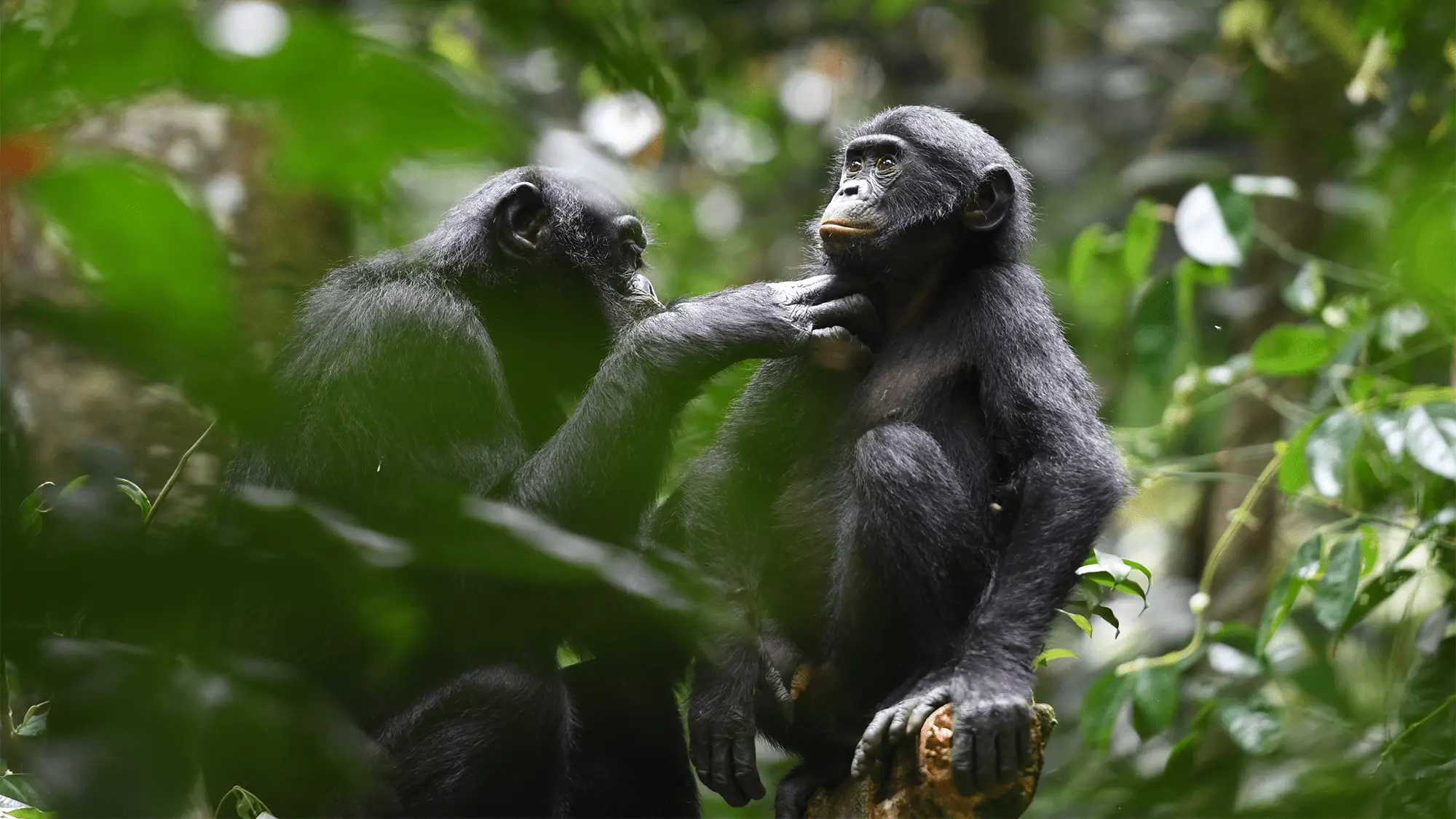Chimpanzees appear to have more hostile relationships between different groups. Even lethal aggression is not uncommon. This hostility has led researchers to assume that group conflict is an innate part of human nature.
Bonobos might be telling a different story about how social structures and communities have evolved over time.
“The ability to study how cooperation emerges in a species so closely related to humans challenges existing theory, or at least provides insights into the conditions that promote between-group cooperation over conflict,’ study co-author and German Primate Center evolutionary biologist Liran Samuni said in a statement.
The study looked at two groups of 31 wild adult bonobos in the Kokolopori Bonobo Reserve in the Democratic Republic of Congo over a period of two years. When the different groups of bonobos met up, they often fed, rested, and traveled together.



Humans are, by far, the most altruistic species of primates. One anthropologist observed that you will never see two chimpanzees carrying a log together.
The father of sociobiology (the study of the evolution of social behavior), EO Wilson, went so far by the end of his career to consider humans formally as a eusocial species, putting us in the same category as ants and bees and a very few other animals. In a eusocial species, the group itself is much more of a target of natural selection than it is in a herd of deer or troop of gorillas. The group itself becomes an individual as an emergent property, analogous to how the living cells of your body work together to create are an individual.
But this is of course going to be a continuous value, not a Boolean one. We need to develop observational studies as well as refine the theoretical models to properly understand both this evolutionary dynamic, and ourselves.